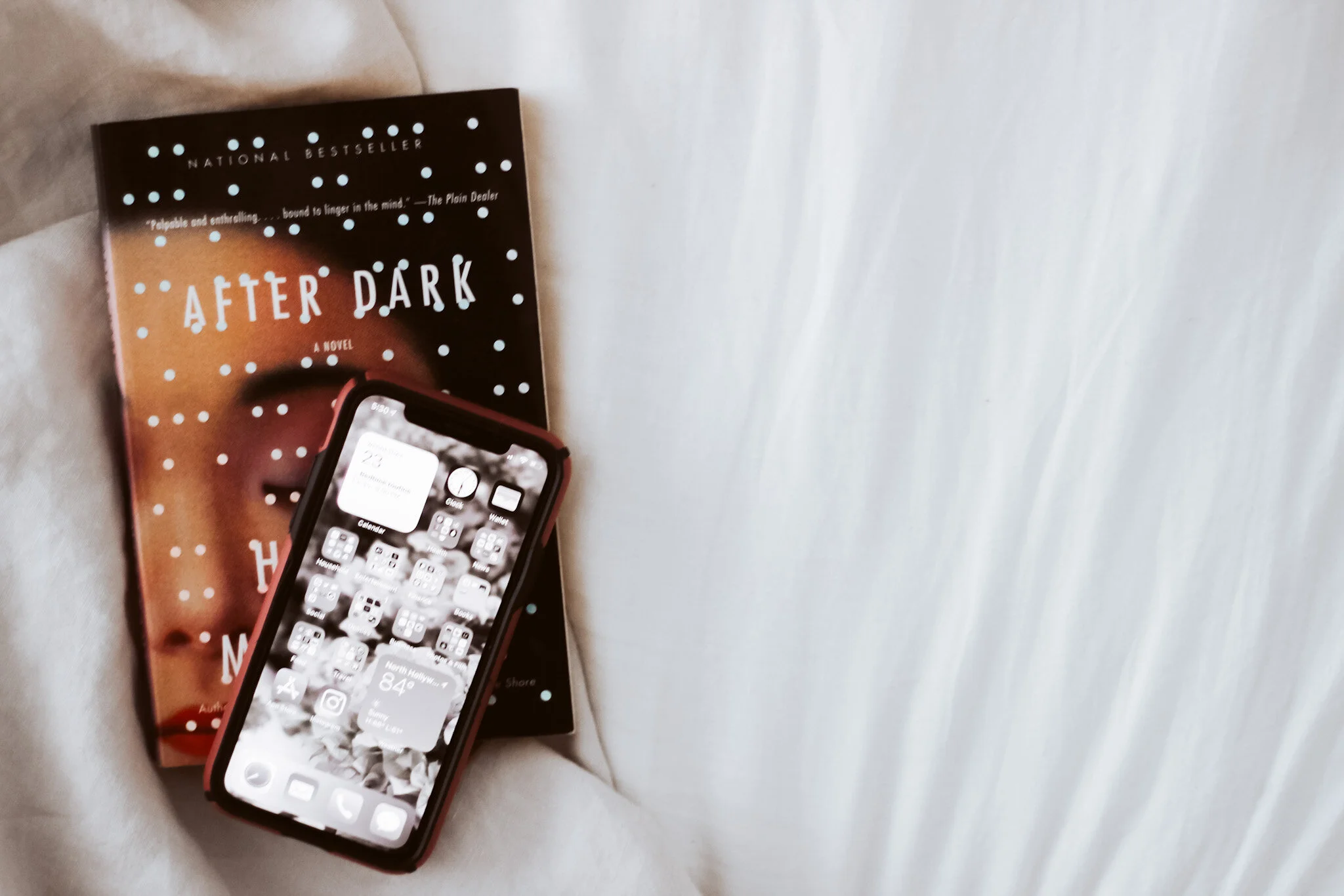My Slow and Mindful Evening Routine
At 8:40 every night, a notification appears on my phone: Bedtime Routine.
I don’t go to bed at 8:40. In fact, my actual bedtime isn’t for another few hours, but that daily reminder sets off a series of actions that have changed my evenings for the better…and when my evenings are better, my mornings are better. A simple and repeatable evening routine has profound effects on the quality of my whole day. It improves my sleep, reduces my anxiety, and increases my productivity.
Do I follow this routine every single night without fail? No, of course not. Life can be unpredictable, and being able to roll with surprise and uncertainty is just as important as having rituals to fall back on. I’m not perfect and my life doesn’t always cooperate, but I’ve noticed that the more disciplined I am in the two hours before falling asleep each night, the more I benefit, so it’s worth making the effort.
My evening routine goes something like this:
Turn off access to news and social media.
Perform skin care and hygiene.
Lower lights.
Change into pajamas.
Meditate and/or read.
Lights out and sleep.
Turn off access to news and social media
The first thing I do at 8:40 is stop with the news. That includes the News app on my phone, television and radio news programs, YouTube, Reddit, Twitter, email briefings, and pretty much any other source that might start me thinking about coronavirus case numbers or Supreme Court vacancies. Just for good measure, I also block out other social media sites and most of my text message chats. Bedtime isn’t the time to be reaching toward the outside world or allowing it into my head.
While technology is at the root of the constant stream of politics and current events in my life (it’s not like a paper version of the Los Angeles Times is landing on my doorstep at 9pm), it also provides some solutions. The iPhone Downtime settings make all my evening app-blocking happen automatically. There’s still some willpower involved, since it’s fairly easy to bypass those limits, but even small technological roadblocks can act as a necessary reminder, especially for actions that are more habitual than intentional. I’ve also found that switching my phone display to grayscale is an astonishingly effective way to reduce the compulsion to get lost in my device.
Perform skin care and hygiene
I’ve gotten slightly higher-maintenance about skin care as I’ve gotten older and enjoy the ritual of double-cleansing, toning, and patting on serum and moisturizer. Once a week, usually on Friday or Saturday, I add a clay mask into the mix, which makes weekends feel extra slow and luxurious. Without the mask, the whole routine (including brushing and flossing) takes less than ten minutes, but there’s something about a clean face and freshly-brushed teeth that acts as a bookend for the day.
Lower lights
Research abounds about the connections between light and sleep, but it also just seems like common sense that dim, warm light would be more conducive to a good night’s rest than bright, cool light. I have adjustable smart lights in my bedroom, but a bedside lamp with a warm, low-wattage bulb works too. The slow transition from light to darkness mimics the natural day-night cycle, even when my schedule isn’t perfectly in sync with nature.
Change into pajamas
I’m not one to switch into loungewear at the end of the work day, so changing into my night clothes is yet another signal that interaction with the outside world is done for the night. I don’t wait until the last minute before climbing into bed to change, though. Like all the other steps in my evening routine, sending this signal early helps my brain wind down and make a smooth transition from wakefulness to sleep.
Meditate and/or read
Meditation is a regular part of my life, but I normally do it in the morning. If I missed my morning session or something during the day has made me particularly anxious or restless, I’ll do a short evening meditation. It feels different to meditate at night, but the right practice can do wonders in slowing down a racing mind.
I usually have one fiction and one non-fiction book going at any given time, and I always opt for the fiction before bed, because I find the type of nonfiction I read is apt to set my mind buzzing with new ideas and conversational topics. Fiction takes my mind off the real world, which is a welcome escape, especially right now. If I’m using an e-reader (my iPad) I enable the Night Shift setting to limit blue light.
Lights out and sleep
I don’t have a set bedtime, so I read until I feel my eyes start to feel heavy. There are definitely some nights when that’s later than others, but starting the routine at the same time each evening makes for a remarkably consistent schedule. I’m usually asleep within five minutes of turning out the lights.
I know I’m lucky to find that last step easy. It’s a struggle for many and sometimes, especially in times of uncertainty and stress, following all the advice in the world isn’t enough. A consistent evening routine offers more rewards than just better sleep, though. It provides a soothing rhythm to the end of the day that calms the mind and simplifies habit formation. What would your ideal evening routine include?




